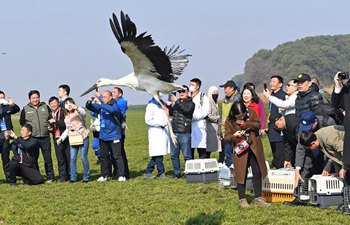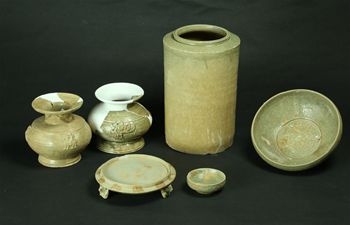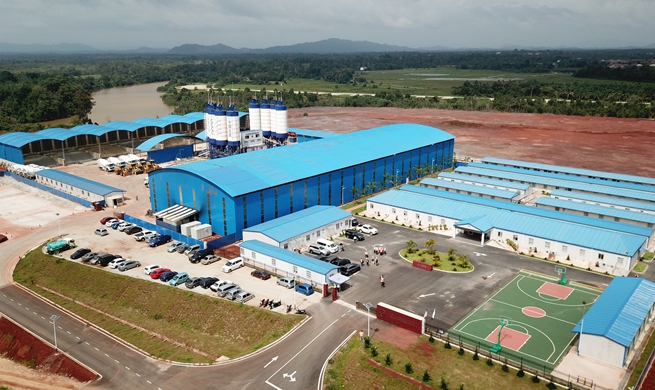ADDIS ABABA, Dec. 9 (Xinhua) - The International Atomic Energy Agency (IAEA) and the United Nations Food and Agriculture Organization (FAO) have joined hands to help Ethiopian agricultural experts in creating improved varieties of Teff, a cereal crop on which more than 60 million Ethiopians depend on as a major staple food.
Teff, which is a grass-like plant with tiny seeds, is the staple food for over 60 million people in the East African country and is the basis of traditional Ethiopian cuisine.
According to the UN-Water, which coordinates the United Nations' work on water and sanitation, "the cereal crop may, however, not be strong enough to withstand the consequences of climate change -- less rain and strong winds."
The UN-Water, in a statement issued on Monday, a project supported by the IAEA in cooperation with FAO "is now using different doses of gamma irradiation to create new plant varieties with favorable traits -- shorter stems that make it less susceptible to lodging, shorter maturity period, which would require less water, and higher yield and protein content."
Noting that developing a new plant variety is "a slow and painstaking process" mainly due to the fact that researchers "need to wait for the plants to grow and mature before seeing any results," the UN-Water, however, stressed the crucial importance of the joint initiative to transform Teff production in the East African country, where the cereal crop grows on over 3 million hectares of land by 6 million smallholder farmers.
The IAEA, which described Teff as an "emerging super-food" in the global arena, also emphasized that the Ethiopian cereal crop "may not be 'super' enough to withstand the consequences of climate change -- less rain and strong winds."
As a naturally gluten-free grain, Teff is also "gaining popularity among health-conscious customers in developed countries," according to the IAEA.
"While it is very adaptive to the different climatic and soil conditions of the country, it has a low yield of only around 1.5 tons per hectare, less than half the average yield of maize in Ethiopia, and the meager yield is under threat from decreasing rainfall and unpredictable weather, researchers say," the IAEA had said recently.
With the support of the IAEA and FAO, plant breeders at the Bishoftu Agriculture Research Centre, located on the outskirts of Ethiopia's capital Addis Ababa, are in recent years turning to nuclear technology in a bid to bring about new Teff varieties with favorable traits.
According to the IAEA, the experts have been over the past three years experimenting using different doses of gamma irradiation to create new plant varieties with favorable traits.
"Unlike for most other crops, which are grown in several countries, for Teff there is no global breeding community or international experience on what may be successful means to achieve desired varieties," an IAEA statement quoted Solomon Chanyalew, Director of the Bishoftu Agriculture Research Centre, who is also a researcher on Teff.
The team has treated seeds of different cultivars with radiation doses of between 200 gray and 2000 gray -- or between 10 and 100 million times more than a typical chest X-ray -- to create the necessary genetic diversity to select for improved lines, it was noted.
The radiation induces changes in the DNA of the seeds, and some of the resulting lines will have favorable characteristics. Researchers are looking for the "sweet spot" of radiation level, which is said to be "just strong enough to change the characteristics of the plants but without killing them."
"This alteration is akin to what happens in natural mutation or traditional breeding selection and line crossing -- but in a process that is speeded up. Smaller seeds require much higher doses of radiation to create changes in their DNA," the IAEA statement read.
Chanyalew anticipated that after another couple of years of testing and crossing with the cultivated variety, new varieties will be ready for farmers to grow on their own fields in three to five years' time.
The IAEA, through its technical cooperation program, has been supporting the center for twenty years and the Teff project for over three years, it was noted.













